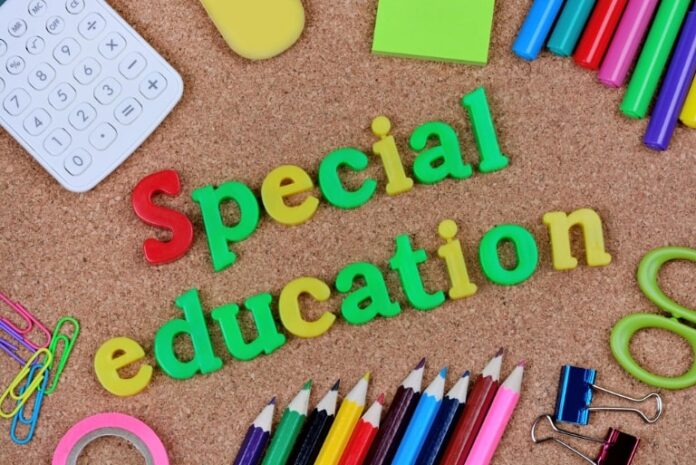Choosing a career in special education means stepping into a role where compassion meets expertise, and where every day brings the opportunity to make a meaningful difference. As student populations grow increasingly diverse, so does the demand for professionals who can support learners with varying needs through individualized and inclusive strategies.
This guide explores the many dimensions of pursuing a Bachelor of Science in Education focused on K–12 special education—from the surging demand for qualified teachers to the flexibility of online programs, the development of hands-on teaching skills, and the wide-ranging career opportunities that follow.
Whether you’re just beginning your journey or considering a return to school, the insights here are designed to help you understand how this vital field not only transforms student outcomes but also offers a deeply fulfilling path for educators committed to equity and impact.
The Growing Demand for Special Education Professionals
In recent years, classrooms across the United States have reflected a growing diversity of learners, each bringing unique strengths and challenges. This reality has amplified the need for dedicated special education professionals who are equipped to provide tailored, evidence-based instruction.
Data reveals that nearly 7.3 million students, or 15% of all public school enrollees, received special education services during the 2021-2022 academic year. This number has been gradually rising, highlighting not only increased identification and awareness but also legislative shifts mandating equitable access to appropriate education for all students.
As national and state policies continue to expand services for students with disabilities, schools are seeking professionals trained to meet a broad spectrum of needs. The demand for teachers who understand both academic content and specialized interventions is climbing, creating significant opportunities for those interested in this line of work.
Enrolling in an online special education degree gives educators a versatile foundation that is both personally rewarding and urgently needed across K-12 environments. Graduates of special education programs often find themselves at the forefront of meaningful educational reform, advocating for inclusion and student-centered support.
Their impact extends beyond the classroom, shaping school culture and fostering stronger, more empathetic communities. With the proper training and commitment, aspiring educators can help transform challenges into opportunities for every learner.
The Flexibility of Online Education Programs
Traditional college programs are not always accessible for working adults, busy parents, or those living far from campus. Online education addresses this challenge by providing high-quality learning experiences that accommodate a variety of life circumstances.
Flexibility is the greatest asset of online programs: asynchronous courses allow students to log in at any time and from any place, empowering them to complete assignments after work, on weekends, or during family downtime.
- Course content is accessible 24/7, promoting self-paced learning and personal accountability.
- Interactive tools such as forums, video lectures, and real-time messaging facilitate meaningful exchange and foster a sense of community.
- Students eliminate the time and expense of commuting or relocating and can maintain current employment while advancing their credentials.
The convenience of online learning opens doors for many individuals who might otherwise delay or forgo completing their degree. In this format, education becomes more inclusive for aspiring teachers from diverse backgrounds and geographies.
Developing Skills to Support Diverse Learners
Every child has the right to learn in a way that builds on their unique strengths. Special education teachers are tasked with identifying both the needs and the gifts of each student and adapting lessons accordingly. Contemporary online programs equip future educators to implement best practices that make lessons accessible to all.
Curricula typically delve into applied behavior analysis, differentiated instruction, positive behavioral supports, assessment, and the crafting of individualized education plans (IEPs). Because effective teaching requires more than theory, practical strategies are integrated throughout many programs.
Opportunities for observation and student teaching, facilitated through virtual or in-person placements, allow learners to implement, reflect on, and refine these approaches. The result is educators with confidence to tackle behavioral, academic, and social challenges within a supportive, individualized environment.
Building Career Pathways and Advancement Opportunities
Special education credentials open numerous doors within—and beyond—the classroom. Graduate outcomes are not limited to teaching positions alone. Certified professionals may find themselves leading intervention teams, designing school-wide support plans, or coaching general education teachers in inclusive practices. Some may advance to district-level leadership roles or consult for nonprofit organizations and educational publishers.
- Classroom Teacher: Directly supports students with disabilities in diverse settings.
- Instructional Coordinator: Develops curriculum and trains fellow educators in implementing specialized strategies.
- Intervention Specialist: Works closely with students who need intensive academic or behavioral support.
- Special Education Department Chair: Leads and manages a school’s special education team.
- Educational Consultant: Advises districts and organizations on best practices and program development.
The skills acquired in such programs are highly transferable and frequently position graduates ahead of their peers in a competitive job market, making this credential a strategic choice whether one’s goal is classroom teaching, leadership, or policy development.
Meeting Licensing and Certification Requirements
Entering the special education field is a regulated process, with licensing and certification requirements that vary by state. Typically, a bachelor’s degree from an accredited teacher preparation program is the essential first step.
Quality online programs are designed to reflect applicable state and national standards, arming future educators with the required coursework, field experiences, and practice in assessment and instruction. This ensures that, upon completion, graduates are eligible and well-prepared to take necessary licensure exams and transition confidently into certified teaching roles.
Potential students should review individual state guidelines early in the process, as requirements may dictate specific coursework or student teaching placements. Staying informed can streamline the licensure path and maximize the usefulness of a chosen program.
Networking and Professional Collaboration Online
While some believe that online learning is isolating, many participants find the opposite to be true. Online education offers unique opportunities to connect with aspiring and practicing educators from across the country—individuals who bring new perspectives, resources, and ideas to the virtual classroom. Frequent online discussions, collaborative projects, and dedicated cohorts help build a supportive network that often lasts well beyond graduation.
These interactions enable future educators to share advice, discuss challenges, and propose creative solutions in real-time. This sense of connection proves particularly valuable as students transition to their professional roles, offering ongoing support and professional growth.
Staying Current with Research and Technology
The field of special education is dynamic and continually evolving in response to new legislation, policy trends, and technological advancements. Online programs are uniquely positioned to keep educators current, as they frequently integrate the latest research findings, digital resources, and interactive teaching tools into their coursework.
Whether it’s learning to implement assistive technology in virtual lessons or adapting methods to address changing student demographics, these skills are essential for modern educators.
Remaining knowledgeable about emerging trends is not just beneficial—it’s necessary. By staying engaged with educational news and reports, and by accessing webinars, research journals, and online communities, teachers can ensure that they bring innovative and practical techniques to the classroom. In this way, learning and professional development become a continuous, lifelong process.
Preparing for a Fulfilling and High-Impact Career
At the end of the day, special education is about making a difference that resonates beyond test scores and graduation rates. Those who pursue this pathway often do so out of a genuine desire to help students reach milestones, no matter how big or small. It is a career filled with day-to-day victories, from facilitating a breakthrough in literacy to helping a child feel included and valued in their school community.
Final Words
Earning a Bachelor of Science in Education in Special Education K-12 at Arkansas State University is not just about professional growth; it’s about building a life of significance. Through specialized study, practical experience, and the support of fellow educators, graduates find themselves empowered to shape brighter futures for all learners.
For those ready to make an impact where it matters most, a career in special education offers extraordinary personal and professional rewards.




